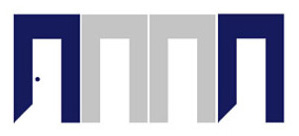What are Firewalls?
Firewalls are an integral part of a security framework for computers. They provide protection against outside attackers by enforcing rules which determine what data packets are allowed to enter or leave the network. By doing this, it shields a computer or network from malicious or unnecessary network traffic. Firewalls can also prevent malicious software from accessing a computer or network via the internet.
Firewalls can be configured to block data from certain locations, applications, or ports while allowing relevant and necessary data through. Firewalls defend resources by validating access and controlling network traffic.
Firewalls can be roughly divided into hardware and software. Both have advantages and disadvantages but don’t get discouraged. The more important decision is to have one. Which type to get is a less critical factor.
- Hardware
These devices are positioned between your computer and the internet (or other network connection). In many instances, Internet providers offer an integrated router with firewall features. Hardware-based firewalls are particularly useful for protecting multiple computers and controlling the network activity that attempts to pass through them.
Pros: They provide an additional line of defense against attacks reaching desktop computing systems.
Cons: They are separate devices that require trained professionals to support their configuration and maintenance. - Software
Most modern Operating Systems already include a built-in firewall feature. It can also be acquired but make sure to do it from a reputable source.
Pros: Software firewalls are able to control the specific network behavior of individual applications on a system.
Cons: As the firewall is installed on the same computer that is intended to protect, it may have difficulties in detecting malicious activity within the computer. Another disadvantage is that each computer in the network should have one, which means that it has to be updated and managed on each computer individually.
How do you know what configuration settings to apply?
Each firewall is different, so you need to read the documentation by the manufacturer which will give you instructions on how to configure it. However, most commercially available firewall products, both hardware and software based, come preconfigured and ready to use. Nonetheless, make sure to check the specifications to guarantee that you have a firewall restricted enough for your particular set up and don’t have potential weaknesses uncovered.
Though properly configured firewalls may effectively block some attacks, always follow security procedures and safe computing practices. Don’t lower your guards just because you have installed a firewall.
